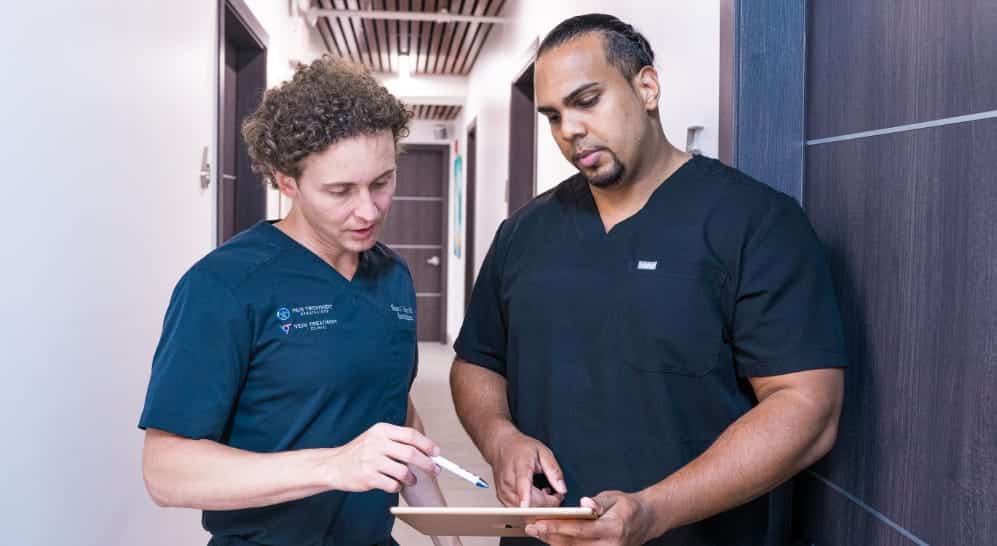What Kind of Doctor Is Qualified to Treat Varicose Veins?
Varicose veins are a common condition affecting many people worldwide. They occur when veins become enlarged, twisted, and visible under the skin, often causing discomfort, swelling, and sometimes more serious health problems. But when it comes to treating varicose veins, you may wonder, what kind of specialist treats varicose veins? There are several healthcare professionals qualified to diagnose and treat this condition, depending on its severity and the type of treatment required. Understanding which specialist to see can help you find the best care for your varicose veins and help you make informed decisions about your health.
What Kind of Specialist Treats Varicose Veins?
When seeking treatment for varicose veins, the type of doctor you need to see largely depends on the nature and severity of your condition. Generally, a vein treatment clinic will be the best place to start, as these specialized clinics are staffed by professionals trained to diagnose and treat vein-related disorders. Below are the types of specialists who can help with varicose veins:
1. Vascular Surgeons
Vascular surgeons are medical professionals who specialize in the treatment of diseases related to the blood vessels, including arteries and veins. They have the necessary training and expertise to manage varicose veins, especially in more severe cases. If you have large, bulging veins or if you experience symptoms like ulcers, persistent pain, or deep vein thrombosis, a vascular surgeon may be the right specialist for you. Vascular surgeons are highly skilled in performing surgical procedures such as vein stripping or more advanced treatments like endovenous laser therapy (EVLT).
A vein treatment clinic with a vascular surgeon can assess your condition and determine whether surgical intervention is necessary. However, surgery is often considered a last resort when other less invasive methods do not provide sufficient relief.
2. Phlebologists
Phlebologists are doctors who specialize in treating vein diseases, including varicose veins and spider veins. This specialty focuses on diagnosing and treating issues related to the veins, and phlebologists often work in vein treatment clinics where they can provide non-invasive treatments like sclerotherapy, laser therapy, and endovenous procedures.
Phlebologists usually have training in internal medicine, family medicine, or dermatology before specializing in vein care. For mild to moderate cases of varicose veins, a visit to a phlebologist might be all you need. These specialists can offer comprehensive care, including patient education and management of your condition through lifestyle changes, compression stockings, or minimally invasive procedures.
3. Interventional Radiologists
Interventional radiologists are specialists who use imaging techniques, such as ultrasound, to guide minimally invasive procedures to treat conditions like varicose veins. These specialists perform procedures like endovenous laser ablation (EVLA) or radiofrequency ablation (RFA), which are commonly used to close off damaged veins without the need for traditional surgery. They also treat varicose veins by using sclerotherapy to inject a solution into veins, causing them to collapse and be absorbed by the body.
An interventional radiologist may work within a vein treatment clinic and collaborate with other specialists to provide comprehensive care for patients with varicose veins. Their use of advanced technology makes them ideal for patients seeking non-invasive options.
4. Dermatologists
Dermatologists specialize in skin conditions but are also trained to diagnose and treat vein disorders, particularly those related to cosmetic concerns such as spider veins or smaller varicose veins. Although dermatologists are not typically trained in the more complex procedures required for severe varicose veins, they are often skilled in less invasive treatments like sclerotherapy and laser treatments for smaller veins.
If you are dealing with varicose veins that are primarily cosmetic and not causing significant health issues, a dermatologist at a vein treatment clinic might be able to offer an appropriate solution. However, if your varicose veins are larger or causing significant pain, it may be best to consult with a vascular surgeon or phlebologist.
5. Cardiologists
While cardiologists are primarily concerned with heart health, some may specialize in the treatment of blood vessel-related conditions, particularly when those conditions are linked to cardiovascular issues. For example, if your varicose veins are the result of a deeper vascular problem, such as venous insufficiency or chronic venous disease (CVD), a cardiologist specializing in vascular health may be able to provide guidance or treatment options.
However, most patients with varicose veins do not need to see a cardiologist. Instead, they will benefit more from visiting a vein treatment clinic where specialists in venous diseases can offer more focused care.
What to Expect at a Vein Treatment Clinic?
A vein treatment clinic is your best option for specialized care when it comes to varicose veins. These clinics typically offer a range of services, from diagnostic assessments to non-invasive treatments. At your first visit, the doctor will conduct a thorough examination, which may include:
- Physical examination: The doctor will examine the appearance of your veins and assess the symptoms you’re experiencing.
- Ultrasound scan: An ultrasound is often used to check for deeper vein issues, such as blood clots or venous insufficiency, which might require more advanced treatments.
- Treatment plan: Based on the severity of your condition, the specialist will propose the most effective treatment options. For many patients, this could include lifestyle changes, compression therapy, or minimally invasive treatments like sclerotherapy, laser therapy, or endovenous ablation.
For those with severe varicose veins or venous ulcers, surgical treatments like vein stripping or ligation may be required.
How Are Varicose Veins Treated?
Once your doctor has assessed your condition, the treatment plan will depend on the severity of your varicose veins. Here are the common treatment options available at vein treatment clinics:
- Lifestyle Changes: In some cases, lifestyle modifications like regular exercise, weight management, and avoiding prolonged standing can alleviate mild varicose veins.
- Compression Stockings: These help improve blood flow and reduce swelling in the veins.
- Sclerotherapy: This minimally invasive procedure involves injecting a solution into the varicose vein, which causes it to collapse and eventually disappear.
- Endovenous Laser Therapy (EVLT): A laser is used to close off damaged veins without surgery.
- Radiofrequency Ablation (RFA): Similar to EVLT, RFA uses radiofrequency energy to close veins.
- Vein Stripping Surgery: In more severe cases, the damaged veins may need to be surgically removed.
Conclusion
If you’re dealing with varicose veins, it’s important to know what kind of specialist treats varicose veins. Whether you see a vascular surgeon, phlebologist, interventional radiologist, or dermatologist, there are many specialists who can provide treatment for varicose veins. Visiting a vein treatment clinic is often the best first step in finding the right care, as these clinics are staffed by professionals who specialize in treating vein-related conditions. With the right specialist and treatment, you can find relief from varicose veins and improve your quality of life.














Post Comment